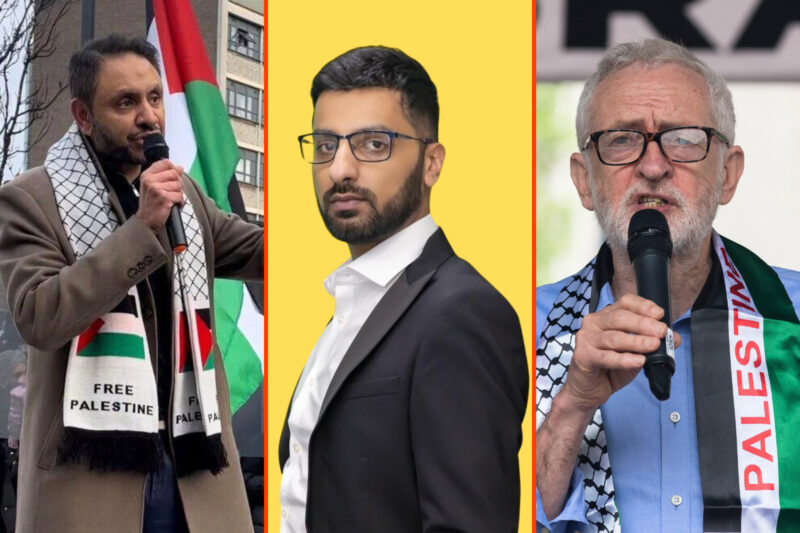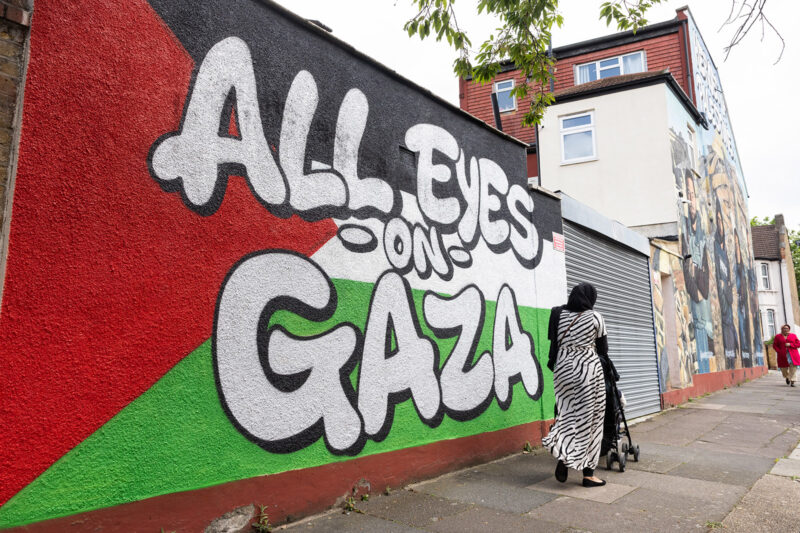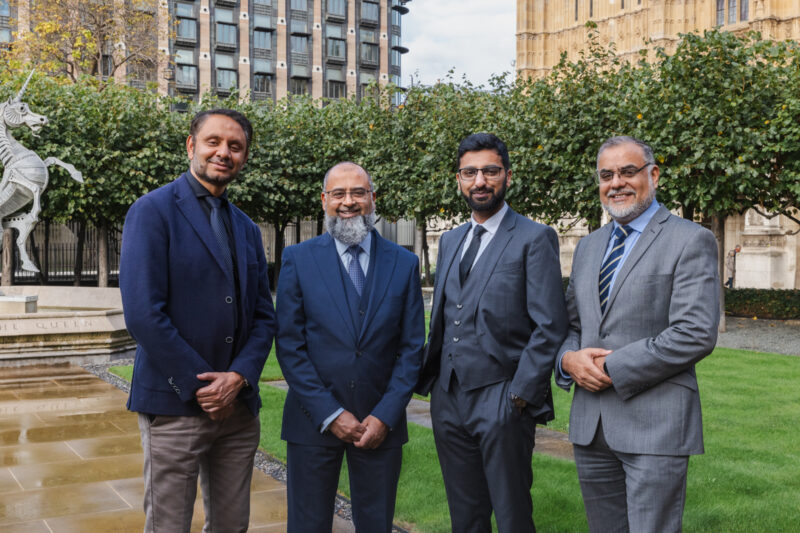
Sharmen Rahman Q&A: ‘I want to show Muslims there’s a party that takes their concerns seriously’
Ex-Labour councillor Sharmen Rahman admits she has a battle ahead as the Green party candidate for Leicester South, but is motivated by genuine passion for her community. Photograph courtesy of Sharman Rahman
Leicester South’s Green candidate has a mountain to climb. But she believes Labour and the Tories have let people down over Gaza and local services
Sharmen Rahman didn’t think she would go back into politics after her experience as a Labour councillor.
Deselected in March 2023 after speaking out against the party’s handling of local rioting, she became disillusioned and turned her focus to drafting policies for a Muslim thinktank.
But months later, as bombs began to fall on Gaza, Rahman gave birth to her fourth child. Images of Palestinian children killed in the attacks, and of the Israeli baby taken hostage the day before, affected her profoundly. Rahman felt neither of the main parties was articulating an adequate response. She joined the Green party in November 2023 – and is now fighting her first general election campaign as a candidate.
Rahman has a steep mountain to climb: Leicester South has left Labour’s hands only once since 1987, and the Greens polled just over 3% in the 2019 election. But as she canvasses the streets of her home town, her baby son in tow, she believes she has the chance to unite voters left behind by the other parties.
She spoke to Hyphen about her race for parliament.
This interview has been edited for length and clarity.
How did you find your way into politics?
I got into politics by accident. I was always outspoken about my views but earlier in life I didn’t have the time to become politically involved. About 10 years ago, my father-in-law was diagnosed with a terminal illness and I became a full-time carer for him as well as my mother-in-law, who was disabled. I also had three small children and I was studying for my master’s.
But when my children went to school and my father-in-law sadly passed away, my duties at home were reduced. I became a governor at my kids’ school and campaigned against it becoming an academy — and that’s how I caught the attention of some people in the Labour party, who encouraged me to join in 2017. I became a Labour councillor for Stoneygate in Leicester City two years later. That was my first foray into formal politics. It made me realise the restrictions of the two-party system in Britain: you come in with great ideas but they don’t really get the space, the time, the energy or the funds to be put into action.
Why did you leave Labour?
The Labour party changed dramatically when Keir Starmer took over. Suddenly, you weren’t able to talk about all the progressive policies that I thought Labour was all about. The policies on equality, public ownership and the economy that I had signed up to became taboo.
In the aftermath of the Leicester riots in 2022 I took on an active role, trying to work with local women from different backgrounds to combat extremism and foster better community relations. But due to this work, I was told — along with 19 other councillors — that I would not be able to stand for Labour in the future, after I had been outspoken about what I saw as Labour’s failures during the riots.
That was the last straw for me. I left politics to focus on my work as a policy consultant and work more in the area of equality. I began writing policy for a Muslim community thinktank, which was eye-opening. It made me understand how Islamophobia is ingrained structurally and it confirmed a lot of the experiences I had as a woman of colour in formal politics. I didn’t think I would come back to politics, because I found it to be so toxic — especially if you’re a woman of colour.
So how did you end up standing for the Greens?
The Gaza situation happened and both the main parties failed to provide any leadership. For me, it’s quite clear that the killing and maiming of children is abhorrent, yet neither of the two main parties was able to articulate a strong call for a ceasefire. It was shocking to me — and, I think, to much of the community of Leicester. Certainly my constituency, Leicester South, felt very let down.
I had been having conversations with different members of my local community about coming back into politics. I really didn’t want to because I had found the atmosphere to be very toxic. But with the situation in Gaza, these calls became a lot stronger and I felt I had a responsibility to do something.
The Green party was the only one that was strong on the issue from day one. They called for a ceasefire back in October without waiting to see which way the public would swing. So with a newborn on my arm, I joined them. Not long after, I ended up being selected as an MP candidate for my home constituency.
Leicester’s population is younger than that of the average UK city. While many young people engage in political protests, they are also the demographic least likely to vote. Why do you think that is, and what could politicians do to translate political engagement among young people into votes?
Politics doesn’t speak to young people because it’s made by older people. Since the 1970s, the average newly elected MP has been 50, while the average Leicester resident is 33. MPs are not a young cohort and they tend to make legislation that suits the needs and aspirations of their generation.
Take housing, for example. Neither of the two main parties is talking about rent controls. They may be talking about “affordable housing” — but affordable to whom?
That’s why I feel like the Green party has a role to play in getting more young people involved in the political process, but it’s a difficult task because they feel so let down and a lot of the issues that they care about are not on the top of the billing order when it comes to this election cycle.
How optimistic are you about winning your seat?
This is a Labour safe seat. I don’t want to overpromise, but I do think we can make a really good campaign and I think something interesting could potentially happen.
As a minority candidate standing for the Green party, I feel it’s my job to show Muslims and other minority communities that actually there is a party that takes minority concerns seriously — that is even-handed when it comes to issues of race and bigotry — and that they do have an alternative. But it’s a case of persuading people that this is a viable alternative, especially within a two-party system.
Could the Muslim vote make a difference for you?
Muslim voters definitely have political power, especially when you look at specific seats, but for me the focus is on the power that every single individual holds. It’s about bringing together a coalition of voters who are unhappy with the system that has not served them – Muslim communities, younger voters, working-class people who have been struggling for over a decade and a half because of austerity – and building a positive campaign around them.
 Newsletter
Newsletter













